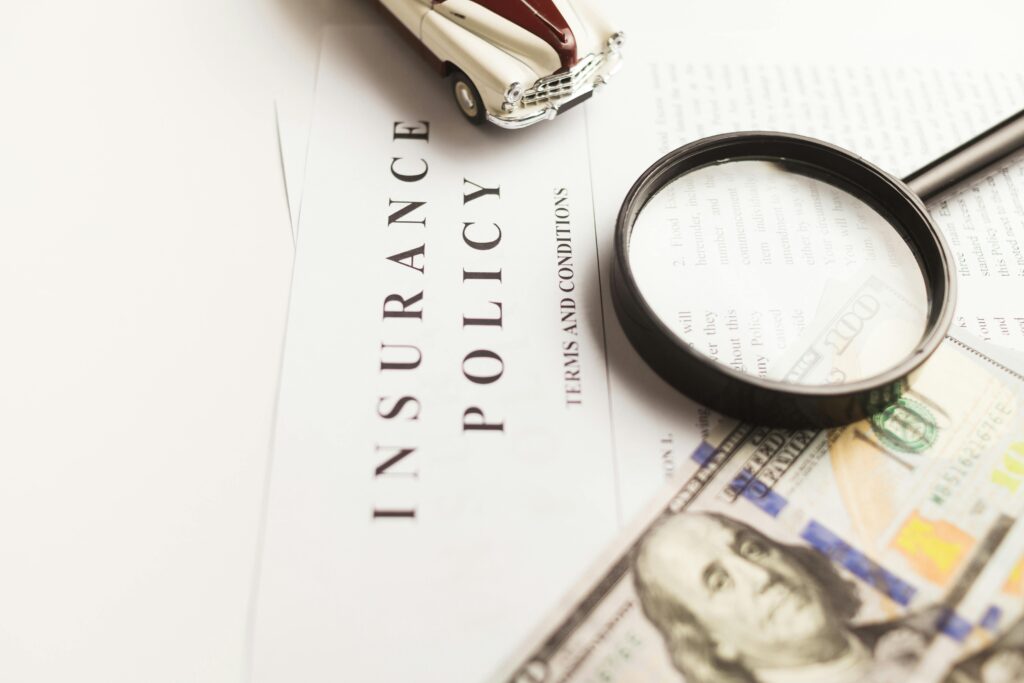Auto accidents and personal injury claims can lead to a multitude of doctor’s visits. These medical appointments can be very expensive. If you’ve filed an insurance claim, the policy coverages should be used to cover these bills. However, this process doesn’t always go as expected. You can end up with a large amount of unpaid medical bills. Here are a few tips to help you manage and navigate through this situation.
1. Understanding Your Coverage
When you file an insurance claim with the at fault party’s insurance company you should be entitled to compensation. The amount of compensation available to you may depend upon the policy limits purchased by the liable party. In Montana, liability insurance is required for all motor vehicles. The minimum coverage limits, by law, are $25,000 per person/$50,000 per incident. However, many drivers purchase insurance policies with coverage limits greater than this minimum. Insurance companies usually try to conceal the limits of insurance coverage purchased by their insureds.
Unfortunately, even though the law requires motor vehicles to be insured, there are people in Montana that haven’t purchased insurance. To protect yourself you can purchase additional insurance coverages from your insurer. This will protect you from uninsured or underinsured drivers. Medical payments coverage will be made available to you which can be used to pay for medical expenses. Medical payments coverage applies to injuries arising out of the auto accident regardless of fault.

2. Notifying Medical Providers of Your Claim
If you or a loved one have been injured in an accident or other unfortunate event, consult with an attorney. This should be done before you notify your providers about the insurance claim. Sometimes liability concerns will cause the other driver’s insurance company to hesitate paying medical bills. Having an experienced attorney assess the situation before directing your healthcare providers to send their bills to the insurance company is best.
3. Health Insurance, Medicare & Medicaid
Especially in disputed liability cases it is common for your health insurance, Medicare, or Medicaid to pay accident-related medical bills. If this occurs, they may be entitled to file a lien and be repaid for the bills they have covered. This is another reason to consult with a lawyer before bills are submitted to your healthcare insurance company, Medicare, or Medicaid. Repayment of these bills can be a confusing process. Sometimes you may unnecessarily exhaust proceeds that may become available to you from the insurance carrier. Remember healthcare insurance companies, Medicare, and Medicaid know how to look out for themselves. Protect your best interests by consulting with an attorney immediately after the accident.
4. Track Your Treatment
Between emergency care, follow up visits, and tests there can be a lot of medical bills. Keeping a copy of all your accident-related medical bills will be very beneficial. It can be used as a reference point for you or your attorney when communicating with the insurance company. Additionally, this will allow you to see what still needs to be paid to each provider. A lawyer can also use this information to contribute to your eventual settlement amount.
5. Following Up with the Adjuster
Upon filing a claim with the insurance company one of their employees called an adjuster will be assigned to your claim. Typically insurance companies use multiple adjusters to deal with damage to your vehicle, medical payments, and bodily injury liability. It is part of the shell game which unnecessarily injects confusion into the claims process to the insurance company’s advantage.
While some adjusters communicate claim status updates frequently others do not. This is where unpaid medical bills can get problematic. You or your attorney may need to contact the adjuster if the medical bills were sent but remain unpaid by the insurer. Emails are the best way to communicate with adjusters in order to keep a running record of the communications. The best practice is whenever you reference a medical bill in the email, keep a copy of the email. If you talk to the adjuster over the phone, send a follow up email. This email should confirm your understanding of the conversation and reference the date it occurred.
Remember adjusters are hired by the insurance company to protect their money. Most accident victims have never been through the claims process before. They end up with an experienced adjuster or adjusters who will take advantage of the situation when they can. Hiring a competent, experienced, local attorney sooner rather than later for assistance is recommended.
6. Work With an Accident Attorney
Personal Injury and car accident claims are made up of many moving parts. Having an attorney help you through your insurance claim can make a great deal of difference and provide better outcomes. Especially considering most people are not familiar with Montana or Federal law which is complicated. Many times, once an attorney becomes involved in a claim, the adjuster tends to pay more attention to it. This may mean your medical bills will be paid more quickly. Your claim may also be resolved more quickly than if you are trying to do it alone.
Additionally, in certain circumstances Montana attorneys can ask for advance payment of your medical bills. Not only do your bills get paid faster but it also prevents the insurer from leveraging you into a lowball settlement because of unpaid medical bills.
7. Settlement
No two cases are exactly the same. The law is complicated and settlement evaluations are complex and often take into account paid or unpaid medical bills. As mentioned above, unpaid medical bills can impact the timeliness of your settlement and the amount you eventually receive.
As part of the settlement process it is important that your medical expenses are considered. Unpaid and/or paid medical bills should be factored into your final settlement. It is highly important they be taken into account sooner rather than later.

Contact our office today at 406-549-3323 for a free consultation.
